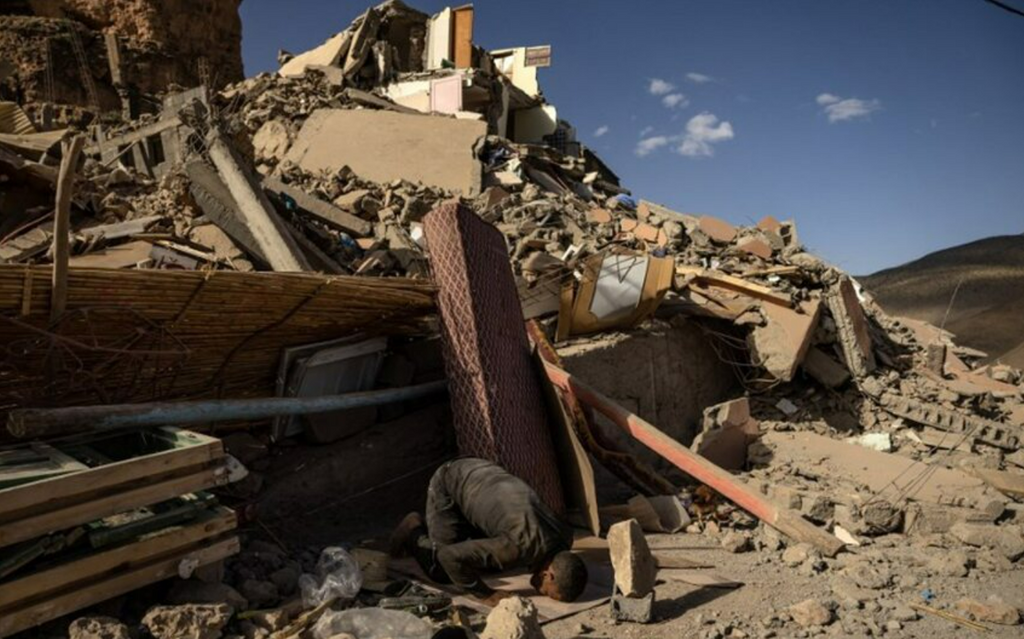Following the earthquake in which at least 2,862 people died in Morocco last week, the country is only accepting limited aid from other countries to avoid aid workers getting in each other's way, according to Mohammed Ameur, the ambassador of Morocco to Belgium.
Immediately after the earthquake, dozens of countries declared their willingness to help. While they are ready to send people and/or resources to Morocco, they have not yet received an official request for help from the country. Currently, it is only accepting aid from the United Arab Emirates, Qatar, Spain, the United Kingdom and Saudi Arabia.
"A careful analysis has been made on the ground and on that basis we have chosen which countries could be useful at this time," Ameur said on RTBF. "Too much help can be counterproductive."
Morocco wants to prevent aid workers from different countries getting in each other's way, he said. "But that does not mean that other countries are excluded. More than 60 countries have offered to help. In the first phase, we accepted help from some countries. But Morocco will probably need help from other countries in the coming hours, days and weeks."
Dealing with disasters
Previously, Morocco was criticised for reportedly not accepting help from other countries for diplomatic reasons, but Ameur strongly denied the allegation. "Morocco does not refuse help because of arguments or international conflicts, which pale in comparison to what has happened now."
Additionally, he stressed that the country is not powerless and also has "a lot of experience" in dealing with disasters. Among other things, Ameur referred to the earthquake in Agadir in 1960, when as many as 15,000 people died.
Last weekend, the ambassador went to Morocco to see the impact of the earthquake first-hand, and reported that there was a lot of willingness from the authorities and the citizens themselves to take control of the situation.
However, it is very difficult to reach numerous disaster areas. Pieces of mountains have crumbled and are blocking the way for emergency services, making the response slower than they would like and resulting in fears that the number of deaths will still increase significantly. Sometimes the army even has to go on foot.
Related News
- No Belgian victims reported yet in Morocco, says Ministry of Foreign Affairs
- EU provides first humanitarian aid to Morocco, no request for search and rescue assistance
- Morocco earthquake: Belgium advises against travel in affected areas
What Morocco needs is money, because it will take a lot of resources to restore and rebuild everything, said Ameur. Belgian Red Cross-Flanders, Doctors Without Borders, SOS Children's Villages and Oxfam Belgium have all launched an emergency fund.
In the meantime, Belgium's Foreign Ministry officially advises against travelling to Morocco, particularly to Marrakech, Ouarzazate, Azilal, Chichaoua and Taroudant.
Ameur, however, sees few problems in travelling to Marrakech, and stressed that tourists can have confidence in local authorities. Guides and hotel operators are also asking tourists not to cancel planned trips, saying that museums are open as usual and markets can continue.
To make a donation to a Moroccan food bank, see here.

